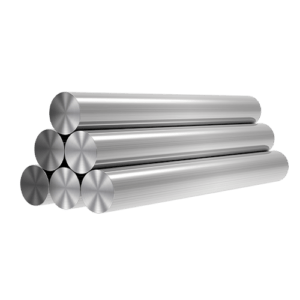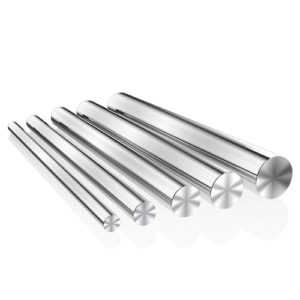Welcome to My Blog!
Before we dive into the content, I’d love for you to join me on my social media platforms where I share more insights, engage with the community, and post updates. Here’s how you can connect with me:
Facebook:https://www.facebook.com/profile.php?id=100090063158454
Now, let’s get started on our journey together. I hope you find the content here insightful, engaging, and valuable.
Introduction

Qilu 304 stainless steel rods are widely recognized for their strength, corrosion resistance, and aesthetic appeal. Made from a high-quality stainless steel alloy, these rods play a critical role in various manufacturing applications. This article delves into the properties of Qilu 304 stainless steel rods, their diverse uses, and why they are a preferred material in modern production environments.
Properties of Qilu 304 Stainless Steel Rods
Superior Corrosion Resistance
Qilu 304 stainless steel rods are known for their exceptional resistance to corrosion. The alloy, consisting primarily of iron, chromium, and nickel, allows these rods to withstand exposure to moisture, chemicals, and various environmental conditions without rusting. This makes them ideal for use in corrosive environments, extending the lifespan of the components made from them.
High Strength and Durability
These rods are characterized by their high tensile strength, which means they can handle significant stress and strain without deformation. Their durability ensures that they maintain structural integrity over time, making them suitable for heavy-duty applications and reducing the frequency of replacements.
Aesthetic Quality
The smooth, shiny surface of 304 stainless steel rods enhances their visual appeal, making them a popular choice for applications where appearance is important. This includes architectural elements, decorative items, and high-end consumer products, where a sleek, polished look is desired.
Heat Resistance
Qilu 304 stainless steel rods can endure high temperatures without compromising their mechanical properties. This heat resistance makes them suitable for use in high-temperature environments, such as in industrial machinery and equipment that operates under elevated thermal conditions.
Applications of Qilu 304 Stainless Steel Rods
Construction and Architecture
In construction and architecture, Qilu 304 stainless steel rods are used in structural components, handrails, and building facades. Their corrosion resistance and aesthetic qualities make them ideal for applications exposed to the elements, ensuring longevity and a modern look.
Automotive Manufacturing
The automotive industry utilizes 304 stainless steel rods in parts such as exhaust systems, trim pieces, and structural supports. Their strength and resistance to environmental factors make them suitable for various automotive applications, contributing to the durability and performance of vehicles.
Food and Beverage Processing
In the food and beverage industry, Qilu 304 stainless steel rods are used in equipment and components that come into direct contact with food products. Their non-reactive nature and ease of cleaning make them ideal for food processing machinery, storage tanks, and countertops, ensuring hygiene and safety.
Medical and Pharmaceutical Equipment
The medical and pharmaceutical sectors rely on 304 stainless steel rods for manufacturing surgical instruments, medical devices, and laboratory equipment. Their biocompatibility, resistance to corrosion, and ability to maintain sterility are crucial for applications in these fields.
Comparison of Stainless Steel Rod Types
| Rod Type | Corrosion Resistance | Strength | Heat Resistance | Aesthetic Appeal | Common Applications |
|---|---|---|---|---|---|
| Qilu 304 Stainless | Excellent | High | Good | High | Construction, automotive, food, medical |
| Qilu 316 Stainless | Superior | High | Excellent | High | Marine, chemical processing |
| Carbon Steel | Moderate | High | Moderate | Low | Structural supports, machinery |
| Alloy Steel | Variable | High | Variable | Moderate | Heavy machinery, high-stress parts |
Advantages of Qilu 304 Stainless Steel Rods
Longevity and Cost-Efficiency
Despite a higher initial cost compared to some other materials, Qilu 304 stainless steel rods offer long-term cost savings due to their durability and resistance to corrosion. Their extended service life reduces the need for frequent replacements, making them a cost-effective choice in the long run.
Versatility in Applications
The versatility of Qilu 304 stainless steel rods allows them to be used in a wide range of applications across different industries. Whether in construction, automotive, food processing, or medical fields, their properties make them adaptable to various needs.
Ease of Fabrication
Qilu 304 stainless steel rods are relatively easy to work with, including fabrication, welding, and machining. This ease of fabrication facilitates the production of custom components and parts, contributing to efficiency in manufacturing processes.
Impact on Modern Manufacturing

Improved Product Quality
Incorporating 304 stainless steel rods into manufacturing processes enhances the quality of the final products. Their strength, corrosion resistance, and visual appeal contribute to higher performance and a more polished end result.
Increased Production Efficiency
Using Qilu 304 stainless steel rods can lead to greater production efficiency by reducing downtime and maintenance needs. Their durability and resistance to wear minimize disruptions in manufacturing operations, leading to smoother and more cost-effective production processes.
Contribution to Sustainability
The longevity and recyclability of Qilu 304 stainless steel rods support sustainability efforts in manufacturing. Their extended service life and ability to be recycled help reduce environmental impact associated with material waste and resource consumption.
Conclusion
Qilu 304 stainless steel rods are integral to modern manufacturing due to their superior properties and wide range of applications. Their exceptional corrosion resistance, strength, aesthetic appeal, and heat resistance make them a valuable material in various industries. Understanding their benefits and applications helps manufacturers make informed decisions about material selection, ultimately enhancing product quality and production efficiency.
Whether in construction, automotive, food processing, or medical equipment, Qilu 304 stainless steel rods provide the reliability and performance needed for successful manufacturing in today’s competitive market.
FAQ
What are Qilu 304 stainless steel rods?
Qilu 304 stainless steel rods are rods made from 304-grade stainless steel, known for their excellent corrosion resistance, strength, and aesthetic quality. They are used in various manufacturing applications due to their durability and versatility.
What industries benefit from Qilu 304 stainless steel rods?
Qilu 304 stainless steel rods are beneficial in industries such as construction, automotive, food and beverage processing, and medical and pharmaceutical manufacturing. Their properties make them suitable for a wide range of applications in these sectors.
How do Qilu 304 stainless steel rods compare to other stainless steel rods?
Qilu 304 stainless steel rods offer great corrosion resistance and strength. Compared to other types like Qilu 316, which provides superior corrosion resistance for marine environments, or carbon steel, which is less resistant to corrosion, Qilu 304 strikes a balance between performance and cost.
What are the advantages of using Qilu 304 stainless steel rods?
Advantages include their longevity, cost-efficiency, versatility, and ease of fabrication. These properties contribute to improved product quality, increased production efficiency, and support for sustainability in manufacturing.
How should Qilu 304 stainless steel rods be maintained?
Maintain Qilu 304 stainless steel rods by regularly cleaning them to prevent corrosion and staining. Use non-abrasive cleaners and avoid harsh chemicals. Regular inspections and proper handling during fabrication will help maintain their performance and appearance.
